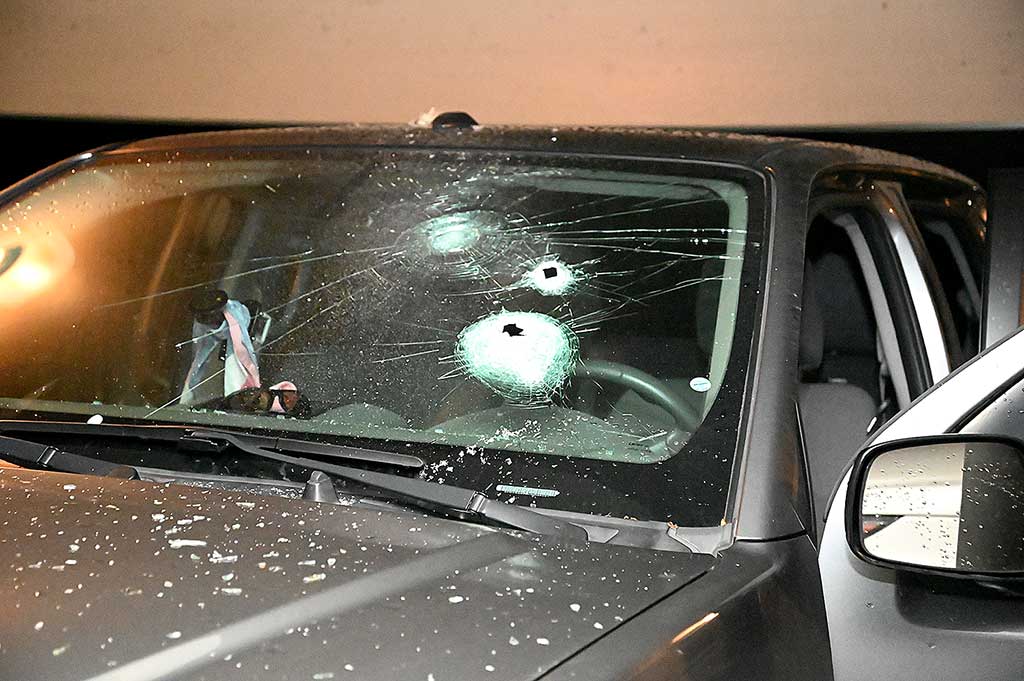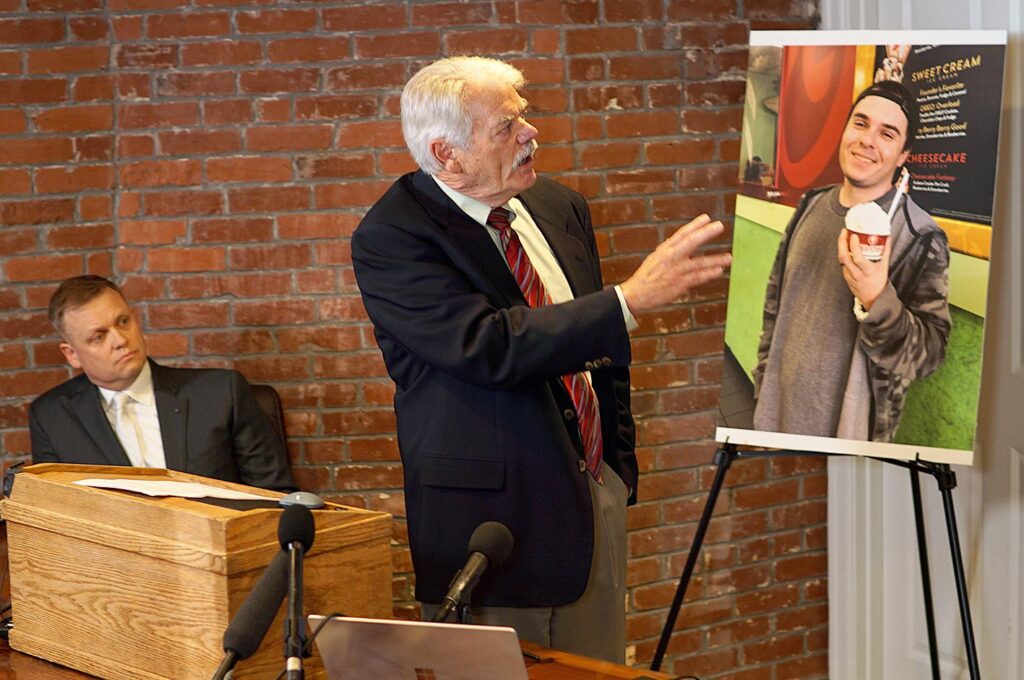
An independent investigator examining the fatal police shooting of Jacob Macduff during a 2021 standoff with Tigard Police concluded officers had no reason to fire on him, criticizing the department’s “chaotic” tactical response and citing deficiencies in the agency investigations that followed.
The 45-page report released this week by Macduff family attorneys and OIR, an independent agency that reviews police shootings, “outlines in detail the failings of the Tigard Police department in the killing of Jacob Macduff and also the failings of the investigation,” said attorney Scott Levin.
It leaves Tigard and the Washington County Major Crimes Team with 31 reform recommendations for improving future response and follow-up investigations. Though neither is legally bound to make the changes, Tigard Police Chief Kathy McAlpine said in a letter to City Manager Steve Rymer that she is looking for places to integrate as many as possible.
“We’re open to many of the recommendations made in the report and will thoughtfully evaluate where they can be incorporated, in alignment with national best practices and Oregon law,” the letter said.
Levin and David Park, the other half of the Macduff legal team, requested Tigard City Council invite investigator and report author Michael Gennaco to present his findings at an upcoming city council meeting where Gennaco could be available for discussion and questions, but say they’ve had no response.
“The public needs to hear from an objective source what went wrong and what needs to be fixed,” Park said.

While the report is profoundly critical, Gennaco also praised McAlpine for changes the department has already made, including outfitting officers with body-worn cameras, developing training to address barricaded subjects in a vehicle and use of less lethal munitions in that circumstance, instating additional de-escalation training, and adding an officer to the Washington County’s Mental Health Response Team.
Macduff, 26, was shot and killed by then Tigard Police Officer Gabriel Maldonado inside his parked truck outside the apartment complex where Macduff lived with his former girlfriend after police responded to a neighbor’s report of domestic violence.
The report cites a lack of planning and communication among the five officers on the scene and notes after firing the initial shots into Macduff’s car, Maldonado waited 18 seconds – enough time for him to move to safety and request medical help for Macduff – before firing another three shots into the vehicle.
“The DA didn’t investigate that gap. Those are facts that, in a normal circumstance, should give rise to criminal responsibility,” Park said. “Why don’t we know whether any grand juror considered whether a crime was committed when those shots were fired again after 18 seconds? The predisposition to turn a blind eye is a structural barrier to police reform.”

The call was the sixth about Macduff in a few days; each characterized him as being in a mental health crisis. Macduff’s mother, in a phone call with Tigard police during the standoff, asked that her son be taken for a psychiatric evaluation.
Police had responded without arrest or harm to Macduff in each of the five previous calls.
“At no time did Macduff make any movement of aggression to any of the officers,” the report said. At the time of his killing, Macduff had been locked in the truck, refusing to exit for more than an hour.
Maldonado told investigators Macduff was armed with a pocket knife, but none of the four other officers present reported seeing it.
Officers were universally acquitted of wrongdoing by a grand jury, and the City of Tigard later settled with Macduff’s family for $3.8 million and agreed to cooperate with the independent investigation.
“This report confirms all my worst suspicions,” said Maria Macduff, Jacob’s mother, in a written statement. “My son didn’t have to die. There was no reason for the police to shoot him. And they covered up all their mistakes in their own investigations.”

The Macduff family commissioned the $34,875 independent investigation.
Gennaco reviewed reports, photographs, statements, and the interviews of witnesses and involved officers, along with the current relevant Tigard Police policies and investigative protocols of the Washington Major Crimes Team.
Grand jury proceedings conducted by the Oregon Department of Justice were not made public, so Gennaco was unable to access witness testimonies.
The report cites a series of investigative missteps by the Major Crimes Team, including its failure to question officers’ claims that they were unaware or did not believe Macduff was having a mental health crisis despite the conversation with his mother and having noted Macduff’s odd behavior in the car.
During the nearly two-hour standoff, Macduff asked that police refer to him as “Macfluff,” and officers reported that he looked “rigid,” made “weird” repetitive gestures, and sometimes did not make sense when he spoke.
“In the official version of the internal administrative review, not once by Tigard Police, not once by the Washington County Major Crimes team, were any of those five officers challenged on their stated belief that they didn’t believe Jacob was suffering from a mental health crisis,” Park said.
The report additionally questions investigators’ failure to interview any of the officers involved for three days after the shooting, and why Maldonado and another officer were directed to sit together in a police car after the shooting in violation of policy that keeps a shooter separate from witnesses to prevent event story collaborations.
It characterizes the Major Crimes Team’s 14-year-old investigation plan as outdated, saying it provides no guidance on conducting investigations.
“If Tigard officers are better equipped to confront future situations without resorting to the use of deadly force, then the family’s interest in this review will have been validated in the best of ways,” the report concludes.























